20 Activities that Benefit Older Adults with Autism
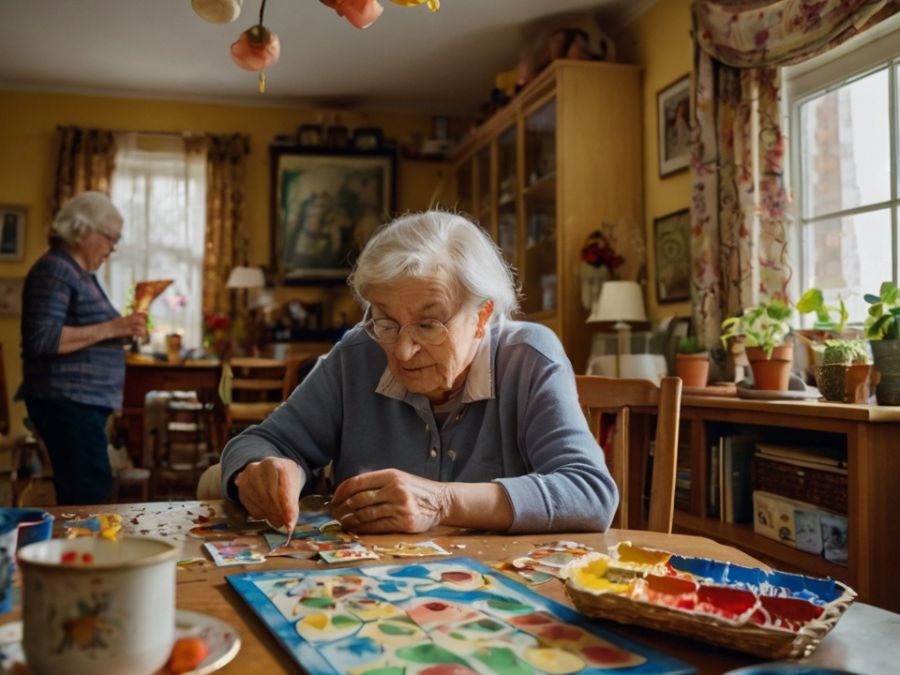
Aging is a natural process full of changes, challenges, and new opportunities. For older adults with autism, this phase brings specific demands that require a welcoming, understanding, and proactive approach. The good news is that certain activities, when practiced regularly and appropriately, can offer immense benefits — promoting autonomy, emotional well-being, cognitive stimulation, and a better quality of life.
In this article, we will explore 20 activities that benefit older adults with autism, supported by scientific research and real-life testimonials. You will also learn practical tips to apply these activities in everyday life, ensuring a healthy, happy, and dignified aging process.
Why Are Activities So Important for Older Adults with Autism?
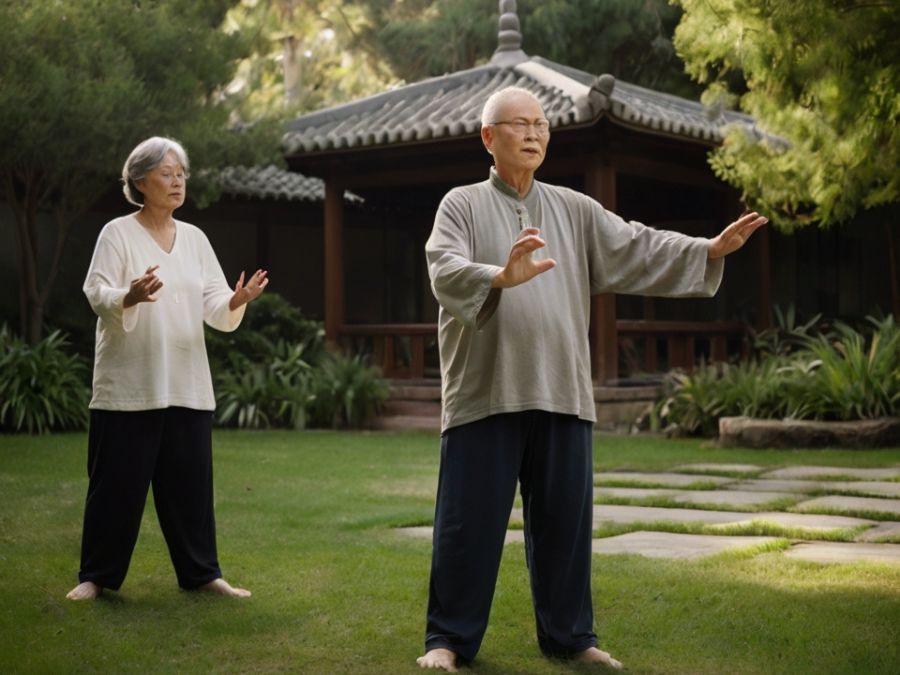
As people with autism age, they may face increased challenges related to social isolation, sensory sensitivities, motor difficulties, and even cognitive decline. In light of these issues, engaging in meaningful and stimulating activities becomes even more crucial. These activities are not just about keeping busy; they are tools for improving mental health, physical well-being, and social integration.
Scientific studies show that activities can help improve cognitive function, reduce anxiety and depression, enhance physical health, strengthen social bonds, and increase self-esteem. They also provide structure and routine, which is essential for individuals with autism, as routines help reduce stress and provide a sense of security.
20 Activities for Older Adults with Autism
Here are 20 activities, backed by scientific research and practical experiences, that can significantly benefit older adults with autism. These activities aim to stimulate different areas of life, from cognitive to emotional to social well-being.
1. Gardening

Gardening is a therapeutic activity that provides sensory stimulation and a sense of accomplishment. It encourages relaxation and mindfulness, offering older adults with autism a chance to engage with nature. Studies have shown that gardening reduces stress and increases mood, making it an excellent activity for emotional well-being.
2. Music Therapy

Music therapy has long been recognized as a powerful tool in autism care. For older adults, it can help reduce anxiety, improve communication, and even stimulate memories. A study published in The Journal of Music Therapy found that music therapy promotes positive emotional states and enhances social interactions.
3. Art and Craft Activities

Art activities such as painting, drawing, and crafting allow older adults with autism to express themselves non-verbally, which can be especially beneficial for those who struggle with communication. Crafting has been shown to reduce stress and increase feelings of accomplishment, and it can also promote fine motor skills.
4. Memory Games
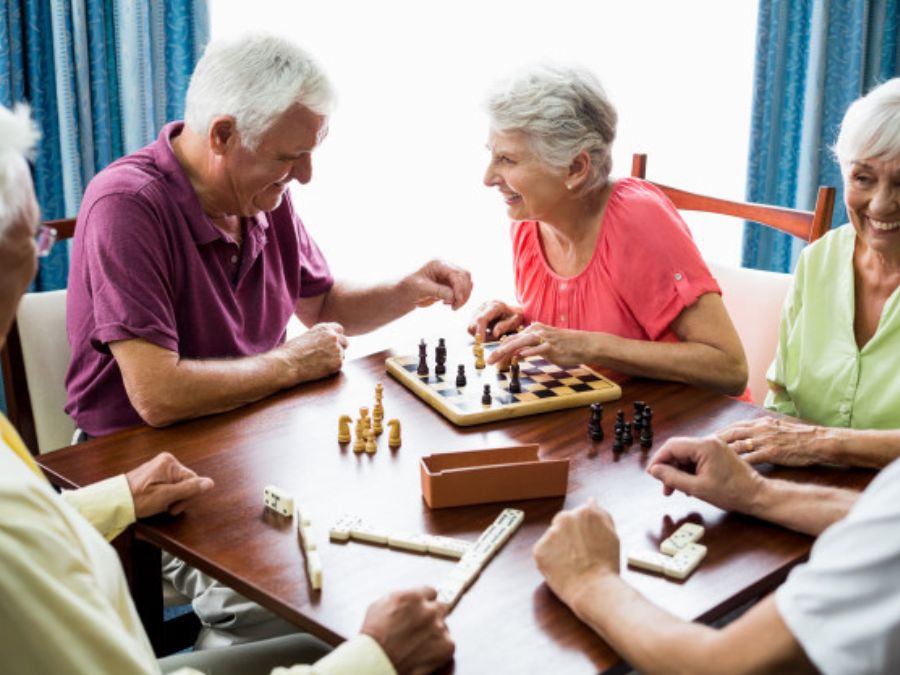
Memory games are a great way to stimulate cognitive function and keep the brain sharp. Simple card games, puzzles, or board games can help older adults with autism enhance their memory and concentration. Research in Neuropsychology, Development, and Cognition has demonstrated that these types of activities can slow cognitive decline and improve problem-solving skills.
5. Yoga and Meditation
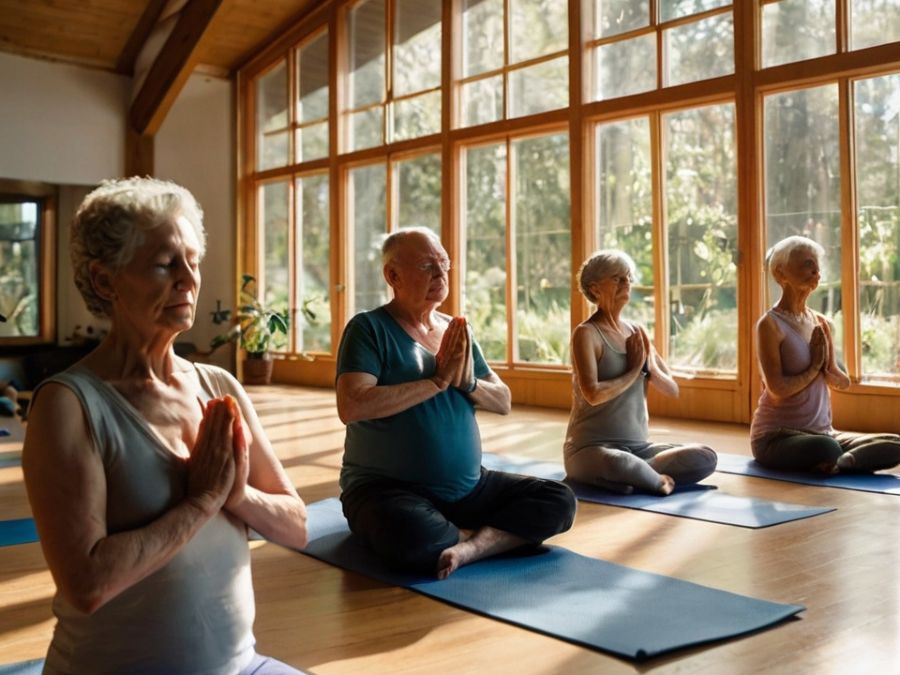
Yoga and meditation can have tremendous benefits for older adults with autism. These activities promote physical flexibility, mental relaxation, and emotional stability. The slow, mindful movements and focus on breathing techniques can also help reduce anxiety and stress. Research has consistently shown that yoga can improve both mental and physical health in individuals with autism.
6. Walking

Walking is a simple yet powerful form of exercise for older adults with autism. It helps improve cardiovascular health, increases mobility, and promotes mental clarity. According to the American Heart Association, walking also helps reduce symptoms of depression and anxiety. It is an easy activity to incorporate into daily routines and can be done at a relaxed pace, making it accessible for most people.
7. Water Aerobics
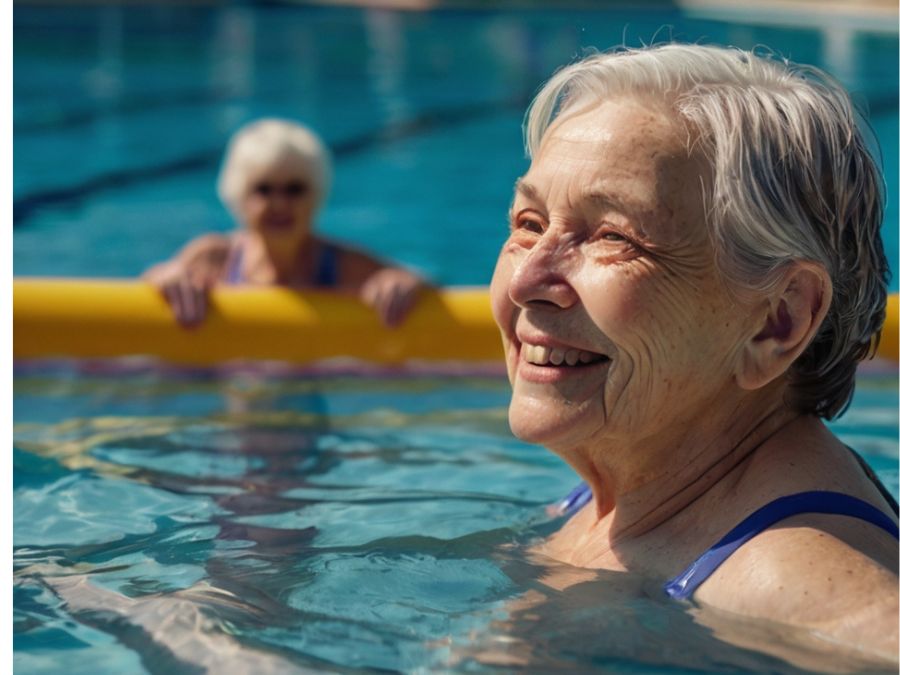
Water aerobics offers a low-impact exercise option for older adults, especially those with mobility issues. The water supports the body, reducing the risk of injury, while providing resistance to strengthen muscles. Studies have shown that water-based activities can enhance flexibility, balance, and overall physical fitness. Water aerobics is also known to reduce stress and improve mood.
8. Animal-Assisted Therapy

Interacting with animals can be incredibly therapeutic for older adults with autism. Animal-assisted therapy has been shown to reduce anxiety, improve mood, and increase social interaction. Whether it’s petting a dog or watching birds in a garden, animals provide a calming presence and a non-judgmental companion.
9. Cooking Simple Recipes

Cooking simple recipes provides a sense of accomplishment and can improve fine motor skills. It also encourages independence and can be a social activity when done with others. Research has shown that cooking engages multiple cognitive processes, including memory, concentration, and problem-solving.
10. Reading Books or Listening to Stories

Reading or listening to stories is an excellent way to stimulate the imagination and cognitive function. Audiobooks, in particular, can be a great option for older adults with autism who may have difficulty reading. Studies have shown that reading promotes brain activity, improves concentration, and helps reduce stress levels.
11. Sensory Activities

Sensory activities are vital for older adults with autism, as they help regulate sensory sensitivities and promote relaxation. Activities like playing with textured objects, scented oils, or soft fabrics can provide soothing sensory input. These activities can also be tailored to the individual’s preferences, ensuring a calming and enjoyable experience.
12. Photography

Photography is a wonderful way for older adults with autism to express their creativity and engage with their environment. It helps improve focus, attention to detail, and fine motor skills. Research suggests that photography can also serve as a form of reminiscence therapy, stimulating memories and fostering a sense of accomplishment.
13. Volunteer Work

Engaging in volunteer work can provide older adults with autism a sense of purpose and social connection. Volunteering in community events, helping at local libraries, or assisting with charity work can significantly enhance their self-esteem. Studies have shown that volunteering helps reduce feelings of isolation and promotes a sense of community involvement.
14. Tai Chi
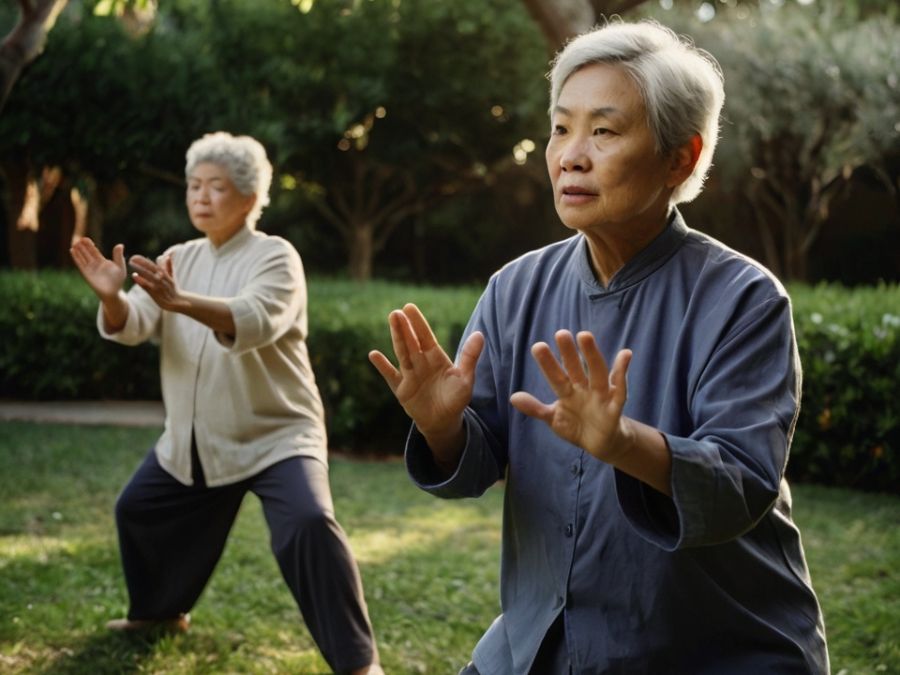
Tai Chi, a form of slow-motion martial arts, is beneficial for balance, flexibility, and relaxation. It has been shown to improve physical health while reducing anxiety and stress. A study published in The Journal of Alternative and Complementary Medicine found that Tai Chi significantly improved both physical and emotional well-being in adults with autism.
15. Journaling

Journaling can be an excellent way for older adults with autism to express their thoughts and emotions. Writing about their day, experiences, or reflections can improve cognitive function and emotional expression. Studies have suggested that journaling can help reduce anxiety and enhance self-awareness.
16. Social Clubs

Joining social clubs or groups with common interests can help older adults with autism build relationships and prevent isolation. Whether it’s a book club, knitting group, or movie night, social clubs provide a safe space for connection and socialization. Research has shown that being part of a group can improve social skills and emotional well-being.
17. Nature Walks

Nature walks allow older adults with autism to connect with the outdoors while promoting physical and mental health. Studies indicate that time spent in nature can reduce stress, improve mood, and enhance cognitive function. Whether it’s a walk through a park or a hike in the woods, nature walks offer numerous benefits.
18. Dancing
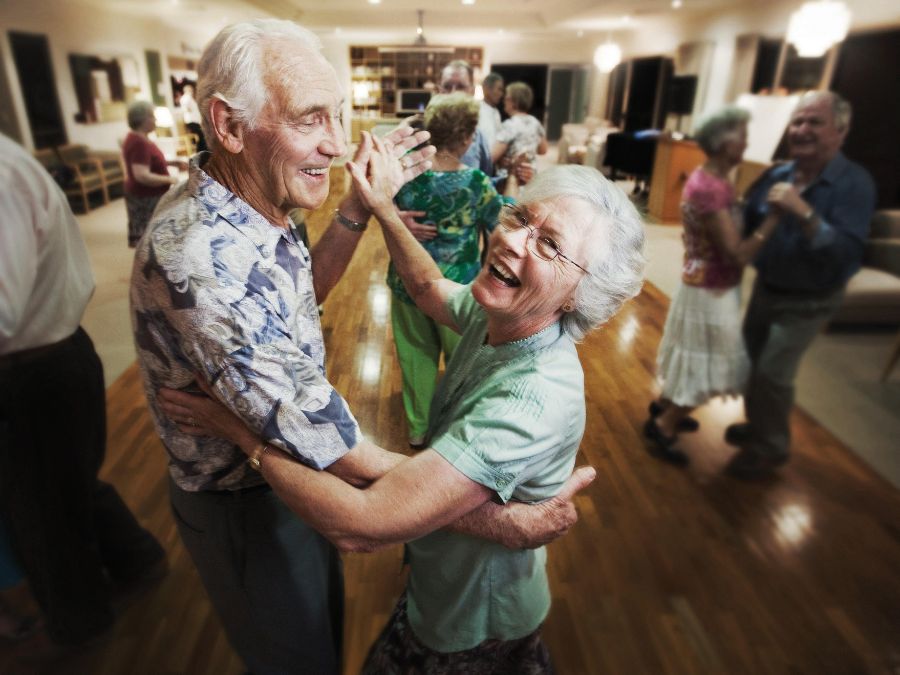
Dancing is an enjoyable way to stay active, improve motor coordination, and boost mood. Studies have found that dancing can enhance cognitive function, promote social interaction, and reduce symptoms of depression and anxiety. It’s also a fun and social activity that can bring joy and laughter to older adults with autism.
19. Board Games

Board games provide a great way for older adults with autism to engage in social interaction and cognitive stimulation. Games that require strategy, memory, or problem-solving skills can improve cognitive abilities and promote teamwork. Studies suggest that board games help reduce stress and foster a sense of community.
20. Meditation
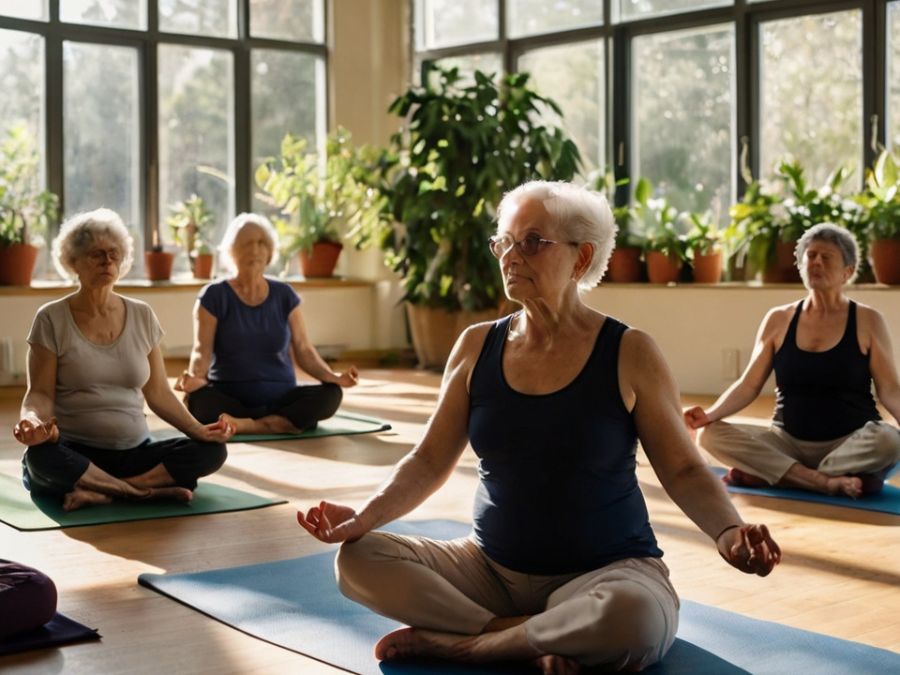
Meditation is an effective way to promote relaxation and reduce stress. It helps improve focus, mental clarity, and emotional stability. Research shows that regular meditation can help reduce anxiety, improve sleep, and increase feelings of well-being. For older adults with autism, meditation can offer a peaceful retreat and a way to center themselves.
Real-Life Testimonials: Stories of Transformation

Nothing is more powerful than real-life stories. Here are some testimonials showing how activities transformed lives:
Mrs. Clara, 72 years old, diagnosed with autism at 65:
“I used to feel lost and isolated. When I started taking care of the garden at the nursing home, everything changed. I felt useful again. Taking care of the plants brings me peace and joy every day.”
Mr. Roberto, 68 years old, autistic and a volunteer at a community library:
“I thought I couldn’t do anything anymore because of autism. But helping organize books makes me feel important. I reconnected with old friends, and today I am much happier.”
Caregiver’s report about Mr. Luiz, 75 years old:
“When we started weekly music sessions, his expression changed. He sings, smiles, and even participates more in group conversations. Music brought light back into his life.”
These examples show that well-chosen activities not only bring practical benefits but also renew the spirit.
Practical Tips for Implementing Activities in Daily Life
To maximize the benefits of activities that benefit older adults with autism, it’s important to follow some practical guidelines:
- Predictable routines: Set fixed times for activities to create a sense of security.
- Constant adaptation: Observe the elder’s mood and energy levels and adjust activities as needed.
- Gradual involvement: Introduce new activities slowly, respecting their limits.
- Welcoming environment: Reduce excessive noise and harsh lighting to avoid sensory overload.
- Celebrate achievements: Celebrate small victories to boost engagement and self-esteem.
How to Create a Personalized Activity Plan
Each older adult is unique. To create the ideal activity plan:
- Assess past and present interests.
- Consider current motor and cognitive abilities.
- Define clear goals: promote relaxation, improve memory, stimulate socialization, etc.
- Alternate dynamic and calming activities.
- Periodically reassess the plan.
Example of a basic weekly plan:
| Day of the Week | Main Activity | Secondary Activity |
|---|---|---|
| Monday | Gardening | Light walk |
| Tuesday | Music therapy | Memory games |
| Wednesday | Handicraft workshop | Aromatherapy session |
| Thursday | Adapted yoga | Story reading |
| Friday | Therapeutic photography | Guided meditation |
| Saturday | Cultural outing | Free dancing |
| Sunday | Adapted water aerobics | Sensory activities |
Final Considerations

Investing in activities that benefit older adults with autism means investing in quality of life, happiness, and dignity. By respectfully and personally stimulating the mind, body, and soul, we give older autistic adults the opportunity to fully experience every stage of life, celebrating their uniqueness and potential.
Through music, plants, art, or simple everyday gestures, each small action matters. And when done with love and understanding, these activities become powerful tools for inclusion, autonomy, and joy.
Remember: the most important thing is not the perfection of the activity execution but the genuine intention to promote well-being and belonging.







